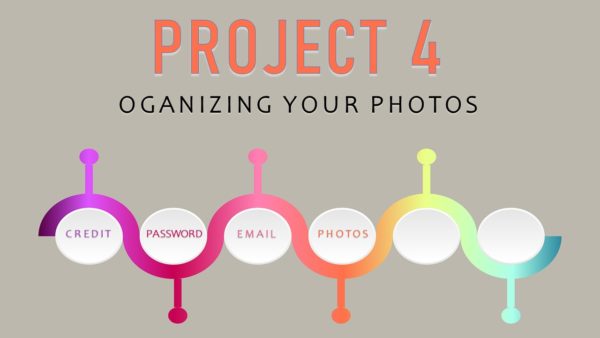Estate planning requires us to confront many challenging issues. For some, the thought of facing…
Organize Your Estate Paperwork
 I have often helped families find the documents needed to settle an estate after the loss of a loved one. It is easiest if there are organized up-to-date files, but honestly that is a rare occurrence. More commonly the important documents are scattered over several rooms in the midst of other random paperwork. This adds a layer of stress to a grieving family, since they have to search for paperwork that may or may not even be there.
I have often helped families find the documents needed to settle an estate after the loss of a loved one. It is easiest if there are organized up-to-date files, but honestly that is a rare occurrence. More commonly the important documents are scattered over several rooms in the midst of other random paperwork. This adds a layer of stress to a grieving family, since they have to search for paperwork that may or may not even be there.
Where do we eventually find these papers?
Everywhere, often with no rhyme or reason. Because of my experience, I know to look in certain places that do not seem obvious. For instance, many seniors use the freezer to store their wills and important papers. This may seem odd at first, but before fireproof safes came along, lawyers often instructed clients to keep important documents where they would be best protected from a fire. Others want to keep these papers hidden and succeed so well that they forget that they are in a book, taped inside furniture, on the back of artwork or behind a mirror. Once I found a will, stocks and car’s title in the garage, tucked inside a dusty box with the manuals for a lawnmower, snow-blower and chainsaw. That was just pure luck. Too often families end up with an estate in probate because they can’t find what they need.
What can you do now to make sure your estate is settled smoothly?
Pick one place to keep your important papers. Choose to store the documents with your attorney, in a file cabinet, safe-deposit box or at home in a fireproof safe. Just be sure you share this location with someone else and provide them access. Having a safe location that no one knows about is useless.
These are some of the documents people will need in order to settle your estate:
- Your attorney’s contact information
- The will or trust
- Insurance policies
- Veteran, union or employee’s benefits
- Funeral arrangements and final wishes
- Marriage license, birth certificates and death certificates
- Records of assets –stocks, bonds, 401K, investment accounts, jewelry inventory
- Motor vehicle titles, property deeds and settlement papers
- Listing of accounts (debt) – credit cards, memberships
- Banking information – checking, savings, safe deposit box information
- Copies of a few recent tax returns (not required, but helpful)
Some papers should not be kept in a safe deposit box because you will want quick access to them if they are needed*. They include:
- Durable power of attorney
- Health care proxy, HIPPA and living will
Putting all this together may take some time, especially if you will need to hunt for these papers yourself. But trust me, it will be well worth the effort, and your loved ones will be grateful. I once witnessed a client’s stress virtually disappear once we organized the family’s important documents. Her husband always handles the paperwork in their house and she had been anxious for years over how she would gather what she needed if he passed first.
Once you have the paperwork organized – start on your virtual assets!
*Some states have explicit laws outlining when a safe deposit box can be opened upon the owner’s death. This is not an issue in Massachusetts since a signer on the account can still access the box if the other signer is deceased. Understand the laws in your state and NEVER use your safe deposit box to store items your loved ones will need immediately upon your incapacitation or death.



